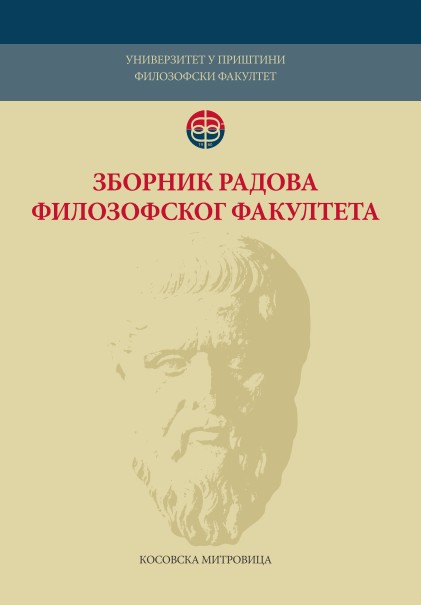Страначке борбе у Краљевини Србији од 1884. до 1887. године
Party Struggles in the Kingdom of Serbia from 1884 to 1887
Author(s): Miroslav D. PešićSubject(s): History, Ethnohistory, Local History / Microhistory
Published by: Филозофски факултет, Универзитет у Приштини
Keywords: Radicals; Progressives; Milutin Garašanin; government; National Assembly
Summary/Abstract: Garašanin's Progressive Government proposed to the National Assembly, which was held in Niš in May 1884, to adopt amendments to several laws of a political nature after the demise of the Timok rebellion. These were the bills amending the law: on the press, on the associations and choirs, on the municipality, and on the gendarmerie. By adopting these repressive laws, the progressives practically prevented the work of political parties, reinforced police surveillance over the municipalities, and increased the gendarmerie forces further. The lost war with Bulgaria in 1885 marked the beginning of the political breakdown of the Progressives and King Milan, who was close to them, although they repeatedly disagreed with his political actions. However, their departure from the political scene did not begin immediately after the lost war, as many expected, but took another year and a half for the Progressives, and three years for King Milan. On the other hand, the Radicals began to believe in the possibility that the defeat that they experienced during the Timok rebellion could come to a victory, that is, to power. A long-standing march against the Radical Party was halted, as King Milan realized that he could not rule with the constant ignorance of the will of the people. The broad popular masses led by the People's Radical Party should have approached the throne and the dynasty and together with the representatives of the Progressive Party alleviate the difficult situation created by the war against Bulgaria, and later provide the crown prince with a safer ruler. The royal attempt to persuade the Radicals to agree with the Progressives failed, as representatives of the Radical Party at the assembly held in February 1886 in Niš resolutely refused an agreement with the Progressives. In April 1886, they signed an agreement with the Liberals, which contained a joint program of work of both parties. The most important points of this program, which was a reflection of the compromise on both sides, concerned the change of the Constitution in the internal and the improvement of relations with the Russians in foreign policy. In June 1887, a liberal-radical government was formed, the first coalition government in the political history of Serbia.
Journal: Зборник радова Филозофског факултета у Приштини
- Issue Year: 50/2020
- Issue No: 4
- Page Range: 143-159
- Page Count: 17
- Language: Serbian

